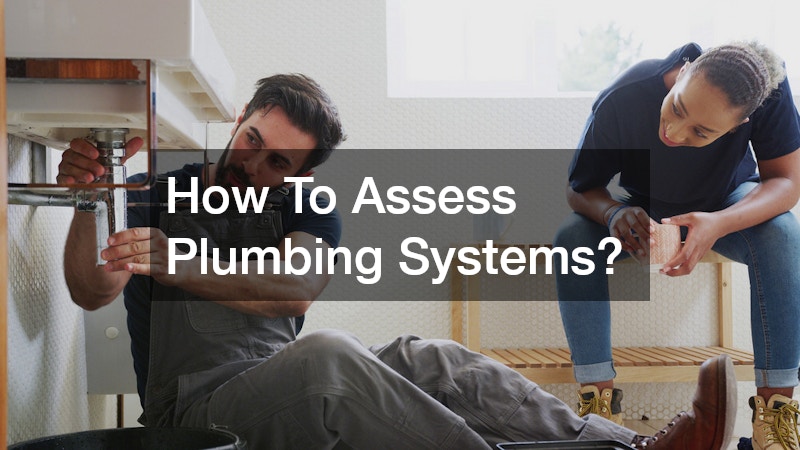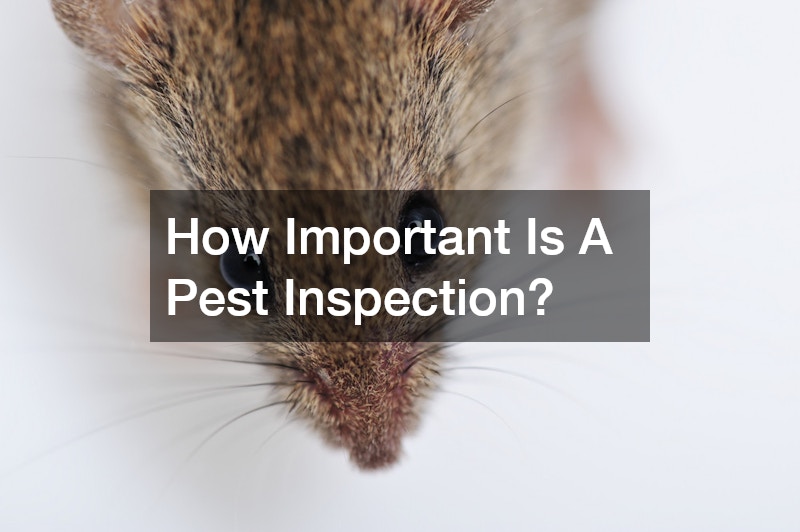Buying a new home is one of the most exciting milestones in life, but it also comes with a significant responsibility. Before you unpack boxes and settle in, ensuring your new home is safe, functional, and free from hidden issues is crucial. A thorough pre-move inspection can save you from costly repairs, unpleasant surprises, and stress down the line. This guide walks you through the most important home checks you should never overlook before moving in.
What Structural Issues Should I Look For?
The structural integrity of a home is foundational to your safety and comfort. Even minor structural problems can escalate if left unchecked, so examining the key components carefully is essential.
Foundation And Basement
The foundation of a house supports the entire structure, making it one of the most critical areas to inspect. Check for cracks, uneven floors, or signs of water intrusion in the basement. Moisture can lead to mold growth, weaken structural materials, and attract pests. You may also consider hiring a professional to assess soil stability around the foundation to prevent future settling or shifting.
Roof And Attic
Your roof protects your home from the elements, so a thorough inspection is non-negotiable. Look for missing shingles, sagging areas, or signs of leaks in the attic. Water stains on ceilings or insulation can indicate roof damage that requires immediate attention. Additionally, ensure that attic ventilation is sufficient to prevent heat buildup and moisture accumulation. Roofing services can provide professional evaluations to give you peace of mind.
Walls And Ceilings
Check walls and ceilings for cracks, discoloration, or bulging areas, which could point to structural issues or water damage. Subtle signs, such as hairline cracks, may not seem serious at first but can indicate deeper problems over time. Tap gently on walls to detect hollow spots that might reveal hidden damage behind drywall.
Doors And Windows Alignment
Doors and windows should open and close smoothly without sticking. Misalignment can indicate shifting in the house’s foundation or framing. Check for drafts around window seals and door frames, which can impact energy efficiency and increase utility costs. Properly functioning doors and windows also enhance security and comfort.
Exterior Walls And Siding
The exterior walls and siding are your home’s first line of defense against the weather. Inspect siding for cracks, gaps, or rot, especially in older homes. Check for water stains, peeling paint, or warped materials that may require repairs. Ensuring your exterior is solid and well-maintained will prevent costly repairs later and maintain the home’s curb appeal.
How To Assess Plumbing Systems?

Plumbing problems can cause major headaches if overlooked. Ensuring your water supply, drainage, and fixtures are in proper working order is essential before moving in.
Water Pressure And Flow
Test faucets and showers to verify water pressure is adequate and consistent. Low water pressure can indicate clogs, pipe damage, or issues with the municipal supply. Conversely, high pressure can stress pipes and lead to leaks. A plumbing company can help assess any irregularities and recommend necessary adjustments.
Drainage Systems
Proper drainage ensures that water flows smoothly away from your home, preventing flooding and water damage. Check sinks, tubs, and outdoor drainage systems for slow flow, backups, or standing water. Addressing drainage issues early can prevent mold growth and structural damage.
Look For Leakages And Rust
Inspect all visible pipes for leaks, corrosion, or rust. Even small leaks can escalate into major problems over time. Pay particular attention to areas around sinks, toilets, and water heaters, as these spots are prone to wear. Local plumbing companies often offer inspections to identify hidden issues.
Inspect Water Heaters
Ensure water heaters are functioning efficiently and safely. Look for signs of corrosion, leaks, or unusual noises. Determine the age of the unit, as older water heaters may require replacement soon. Maintaining a reliable water heater is crucial for comfort and safety in your new home.
Verify Pipe Conditions
Check both exposed and concealed pipes for any signs of deterioration. Old or damaged pipes may lead to leaks, water contamination, or costly repairs. Upgrading outdated piping with a plumbing company can save significant money and hassle in the long run.
What Should I Check In Electrical Systems?
Electrical safety is paramount in any home. Faulty wiring or outdated systems can lead to fires or operational problems.
Electrical Panel Inspection
Begin with the electrical panel, ensuring it is organized, properly labeled, and free from corrosion. Verify that breakers and fuses function correctly. Consider hiring a licensed electrician to inspect the panel for hidden hazards and confirm that it meets current safety codes.
Check Outlets And Switches
Test all outlets and switches to ensure they work correctly and are properly grounded. Look for signs of overheating, scorch marks, or loose connections. Updating old or faulty outlets can improve safety and convenience.
Wiring Conditions
Examine visible wiring for fraying, exposed wires, or outdated materials such as knob-and-tube wiring. Faulty wiring poses a fire risk and may need professional replacement. Reliable wiring is essential for powering modern appliances and electronics safely.
Evaluate Lighting Fixtures
Ensure all lighting fixtures are functional and properly installed. Check for flickering lights or signs of electrical strain, which can indicate deeper issues. A licensed electrician can assess whether your current setup meets modern standards and energy efficiency expectations.
Test Safety Alarms
Smoke detectors, carbon monoxide detectors, and other safety alarms should be tested and in good working order. Replace batteries if needed and ensure devices are strategically placed throughout the home. These systems are vital for protecting your family in emergencies.
Are There Any Heating And Cooling Concerns?

A well-functioning heating and cooling system is crucial for comfort, especially during extreme weather. Proper inspection ensures energy efficiency and avoids unexpected breakdowns.
HVAC System Efficiency
Test the HVAC system to confirm it heats and cools evenly throughout the home. Listen for unusual noises, check for leaks, and review maintenance records. Hiring an HVAC professional can help identify issues and ensure the system is functioning efficiently.
Insulation Quality
Inspect insulation in walls, attics, and crawl spaces to ensure it is sufficient for your climate. Poor insulation can lead to higher energy bills and uneven temperature control. Proper insulation is essential for comfort and energy efficiency.
Ventilation Systems
Check ventilation in bathrooms, kitchens, and other areas prone to moisture buildup. Poor ventilation can cause mold growth, unpleasant odors, and indoor air quality issues. An air duct cleaning service can help maintain a clean and healthy airflow throughout the home.
Inspect Air Filters
Clean or replace air filters in HVAC systems before moving in. Clogged or dirty filters reduce airflow, strain equipment, and compromise air quality. Regular maintenance supports both comfort and the longevity of your heating and cooling systems.
How Important Is A Pest Inspection?

Pest infestations can cause structural damage and health risks. A thorough pest inspection is essential for peace of mind in a new home.
Signs Of Termite Activity
Look for signs of termites, such as mud tubes, hollow-sounding wood, or discarded wings. Termites can compromise structural integrity, and early detection is critical. Exterminators can provide a comprehensive assessment and treatment plan if needed.
Rodent Infestation Indicators
Check for droppings, gnaw marks, or unusual noises in walls and attics. Rodent infestations can spread disease and damage insulation, wiring, and furniture. Local pest control services can help remove and prevent rodent issues.
Look For Insects And Bed Bugs
Inspect for insects, bed bugs, and other pests in bedrooms, furniture, and hidden areas. Small infestations can quickly grow if not addressed immediately. Prompt action prevents long-term problems and ensures a comfortable living environment.
Outdoor Pest Inspections
Examine the yard, gardens, and exterior structures for signs of pests. Standing water, decaying wood, or overgrown vegetation can attract insects and rodents. Coordinating with local pest control can help maintain a pest-free environment.
Review Previous Pest Control Measures
Ask the previous owners about past pest control treatments and review any available documentation. Understanding the home’s pest history can guide preventive measures and inform professional inspections.
What Concerns Exist With Local Environmental Risks?
Environmental factors can significantly affect the safety and livability of your new home. Being proactive helps protect your investment and family.
Flood Zone Evaluation
Determine whether the property is located in a flood-prone area. Flood risks can increase insurance costs and require additional precautions. Check local flood maps and consider mitigation options if necessary.
Earthquake Preparedness
If you live in a seismic zone, assess the home’s earthquake resistance. Look for structural reinforcements and secure heavy furniture to prevent injuries during tremors. Preparedness measures can reduce damage and improve safety.
Fire Hazard Assessment
Identify potential fire hazards both inside and outside the home. Ensure smoke alarms are functional, inspect electrical systems, and review landscaping practices. Proximity to forests or dry vegetation may require additional precautions.
Environmental Pollution Indicators
Assess potential environmental pollution sources, such as nearby industrial sites, contaminated soil, or air quality concerns. Understanding environmental risks ensures a healthier living space and long-term safety.
How To Evaluate Garage And Driveway Conditions?
Garages and driveways are often overlooked but play a crucial role in home functionality and convenience. If you plan to hire moving companies to help transport your belongings, make sure the driveway and garage provide easy access and sufficient space for large trucks.
Driveway Surface Integrity
Examine the driveway for cracks, potholes, or uneven surfaces. Damaged driveways can cause accidents, reduce curb appeal, and require costly repairs. Addressing surface issues before moving in saves time and money.
Check For Oil Stains
Look for oil stains or chemical spills in garages or driveways. Stains may indicate previous maintenance problems or neglect. Cleaning or sealing surfaces improves both appearance and safety.
Storage Space Availability
Assess available storage space in the garage, including shelving, cabinets, and overhead options. Adequate storage helps organize belongings and maximizes usable space.
Electrical Outlets In Garage
Verify the presence and functionality of electrical outlets in the garage. Well-placed outlets support power tools, appliances, and electric vehicles. Upgrade or install outlets if needed to meet your household needs.
Are There Any Permits Or Legal Checks Needed?

Legal and regulatory compliance ensures your home is safe, properly maintained, and free from disputes.
Zoning Regulations
Understand local zoning rules that may impact property use or renovations. Verify whether planned modifications comply with regulations to avoid fines or conflicts.
Verify Building Codes Compliance
Check that all renovations and structures meet current building codes. Inspect permits and documentation for prior improvements. Noncompliance can affect safety, insurance, and resale value.
Homeowner Association Rules
If your property is part of a homeowner association, review its rules and fees. Associations may have specific guidelines regarding landscaping, exterior modifications, or community standards.
Easements And Boundary Agreements
Confirm easements, property lines, and boundary agreements with neighbors. Disputes over land use or access can create long-term complications. A fence company can assist in confirming boundaries and installing proper fencing if needed.
How To Inspect The Landscaping?
Outdoor spaces contribute to your home’s appeal, safety, and functionality. A careful landscaping inspection is essential.
Proper Drainage And Grading
Evaluate grading to ensure water flows away from the foundation. Poor drainage can lead to flooding, foundation issues, or erosion. Corrective measures may involve regrading or installing drainage systems.
Health Of Trees And Shrubs
Assess the health of trees, shrubs, and plants. Dead or overgrown trees can be hazardous, requiring tree trimming service for safety and aesthetic improvement. Healthy landscaping enhances property value and enjoyment.
Outdoor Lighting Systems
Check outdoor lighting for functionality, coverage, and energy efficiency. Adequate lighting improves the safety and usability of outdoor spaces at nighttime.
Lawn And Garden Maintenance
Evaluate the condition of lawns, flower beds, and gardens. Look for pest infestations, overgrowth, or poor soil conditions. Proper maintenance ensures attractive and usable outdoor areas.
Fencing And Gate Integrity
Inspect fences and gates for stability, damage, or wear. A reliable fence company can repair or replace damaged fencing to ensure privacy, security, and boundary definition.
What Should I Consider About Water Quality?
Safe, clean water is essential for health and household operations. Assessing water quality prevents long-term issues.
Test Water Hardness
Determine water hardness levels to protect plumbing and appliances from mineral buildup. Hard water can cause scaling, reduce efficiency, and shorten the lifespan of equipment.
Check For Contaminants
Test for contaminants such as bacteria, heavy metals, or chemicals. Unsafe water can affect health and require filtration or treatment solutions.
Assess Plumbing For Rust
Inspect pipes for rust or corrosion, which can affect water quality and pressure. Old plumbing may need replacement to prevent contamination and leaks.
Well Water Vs City Supply
Determine whether the home relies on a well or city water supply. Each system has unique maintenance requirements and testing protocols to ensure safety and reliability.
Moving into a new home is exciting, but careful inspections are critical to ensure your new space is safe, functional, and comfortable. By checking structural elements, plumbing, electrical systems, HVAC performance, pest activity, environmental risks, garages, legal compliance, landscaping, and water quality, you can avoid unexpected problems and protect your investment. Coordinating with professionals such as local movers, AC companies, roofing services, exterminators, plumbing companies, tree trimming services, air duct cleaning services, and fence companies ensures that every aspect of your new home is move-in ready. Coordinating with professionals such as local movers, ac companies, roofing services, exterminators, plumbing companies, tree trimming services, air duct cleaning services, and fence companies ensures that every aspect of your new home is move-in ready.



